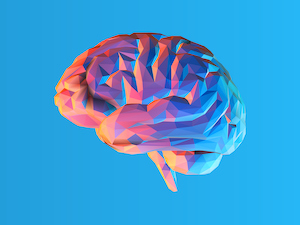Does Alzheimer’s Disease Stem from Infection?
This question was debated at the recent Alzheimer’s Association International Conference. Research suggests infectious agents from viruses or bacteria may trigger immune responses that are related to the formation of plaques and tangles that are common with Alzheimer’s.
Source: MedPage Today
Better Blood Pressure Control Linked to Better Brain Health
Greater blood pressure control for those with high blood pressure is associated with fewer adverse changes in the brain, which could lower risks for developing dementia, a new study reveals. The study shows that those with high blood pressure who achieved a systolic reading of less than 120 mmHg had a significantly lower amount of white matter lesions on their brains and a slight decrease in brain volume than those patients who had the current standard healthy blood pressure reading of 140 mmHg.
Source: ScienceDaily
Why Women’s and Men’s Alzheimer’s Risks Differ
New research reveals why women are more likely than men to develop Alzheimer’s disease. Scientists have found that the disease spreads differently in the brains of women, which may account for why two-thirds of women have it. Researchers also found that women tend to do better on verbal memory tests than men, explaining why many cases of early-onset Alzheimer’s in women go undiagnosed.
Source: Stat
Most Brain Health Supplements Don’t Work
Nearly a quarter of adults ages 50 and over take a supplement designed to help with brain health. The problem, doctors say, is these supplements aren’t regulated and there’s no proof that they even work. Many supplements focus on a combination of nutrients designed to benefit the brain. This article looks at the primary nutrients meant to boost brain health and how to incorporate them into your diet.
Source: Harvard Health
Mindfulness Meditation May Help Mild Cognitive Impairment
Researchers at Wake Forest Baptist Health found that practicing mindfulness meditation may be beneficial for older adults with mild cognitive impairment. Mindfulness meditation may help to increase the brain’s cognitive reserve.
Source: Wake Forest Baptist Medical Center
A Blood Test for Alzheimer’s is Coming
Scientists at Washington University in St. Louis reported they have developed the most sensitive blood test for detecting beta-amyloid. Accumulations of beta-amyloid in the brain are the hallmark of Alzheimer’s disease, but the test devised by these scientists won’t be available for clinical use for years. However, scientists report the blood test is able to identify patients with beta-amyloid faster than a brain scan, which is being used in practice today.
Source: The New York Times










